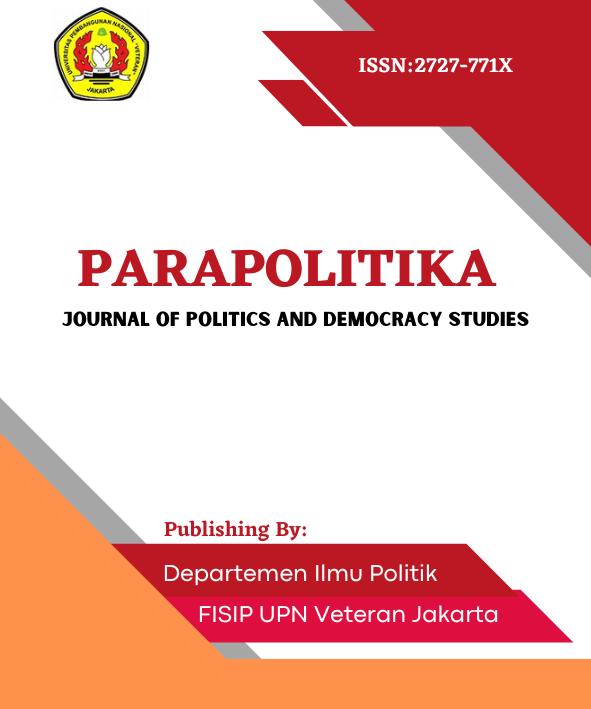Hambatan Keterwakilan Politik Perempuan Di Indonesia
DOI:
https://doi.org/10.33822/jpds.v4i2.6039Keywords:
gender, politic, indonesiaAbstract
This study identifies the factors that prevent women in Indonesia from achieving elected office in the provincial level in Indonesia. The results showed that lack of access to financial resources, internal party politics, and women's marital status can be barriers to women achieving elected office. However, access to social and political networks that provide women with key resources, belonging to the dominant religion in your region, and age lead women to greater political success. These findings are based on the interpretation of statistical correlations and content analysis results from in-depth interviews and focus group discussions. The aim of this research is to provide evidence-based findings and recommendations, which can be used to increase the electability of women political candidates in elections.
References
Aspinall, Edward, Sally White, and Amalinda Savirani. "Women's Political Representation in Indonesia: Who Wins and How?" Journal of Current Southeast Asian Affairs 40, no. 1 (2021): 3-27, https://journals.sagepub.com/doi/pdf/10.1177/1868103421989720;
Prihatini, Ella S. “Women’s Views and Experiences of Accessing National Parliament: Evidence from Indonesia.” Women’s Studies International Forum 74 (May-June 2019): Pages 84-90. https://doi.org/10.1016/j.wsif.2019.03.001
Prihatini, Ella S. “Women Who Win in Indonesia: The Impact of Age, Experience, and List Position.” Women’s Studies International Forum 72 (January 1, 2019): 40–46.
Perdana, Aditya, and Ben Hillman. “Quotas and Ballots: The Impact of Positive Action Policies on Women’s Representation in Indonesia.” Asia & the Pacific Policy Studies 7, no. 2 (May 2020): 158–70. https://doi.org/10.1002/app5.299.
Wieringa, Saskia. "Islamization in Indonesia: Women Activists’ Discourses." Signs: Journal of Women in Culture and Society 32, no. 1 (2006): 1-8, https://www.journals.uchicago.edu/doi/10.1086/505274.
Bayo, Longgina Novadona. “Women Who Persist: Pathways to Power in Eastern Indonesia.” Journal of Current Southeast Asian Affairs 40, no. 1 (April 2021): 93–115. https://doi.org/10.1177/1868103421989712.
Perdana, Aditya, and Ben Hillman. “Quotas and Ballots: The Impact of Positive Action Policies on Women’s Representation in Indonesia.” Asia & the Pacific Policy Studies 7, no. 2 (May 2020): 158–70. https://doi.org/10.1002/app5.299.
Indonesia. PDSPK Kemdikbud. (2016). (rep.). STATISTIK SEKOLAH MENENGAH ATAS (SMA). Jakarta. Retrieved from: https://indearchipel.com/2018/03/13/onderwijs-indonesie/#voetnoten






